Different Kinds of Peppers You Can Use in Your Cooking
Peppers are a culinary powerhouse, adding color, flavor, and heat to global dishes. Whether you’re a fan of the fiery heat or prefer something milder, there’s one for everyone. I used to cook with peppers a lot more than I do now.
However, I try to use as many vegetables as possible when cooking. Peppers add a nice little heat or flavor to cooking. So, today, I want to talk about the different kinds of peppers you can use in your cooking.
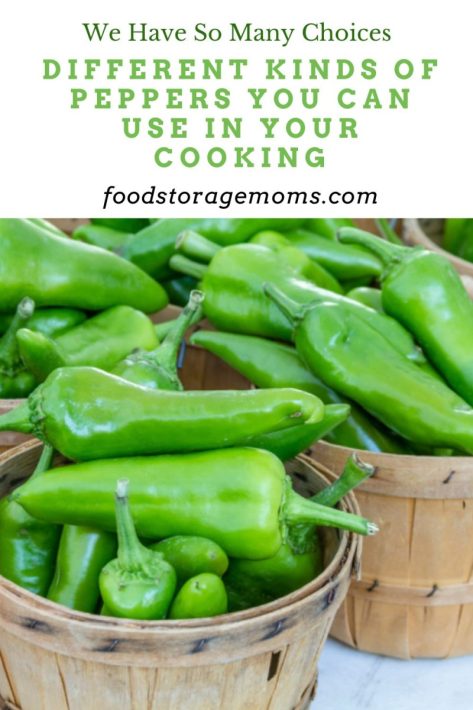
Different Kinds of Peppers You Can Use in Your Cooking
Bell Peppers
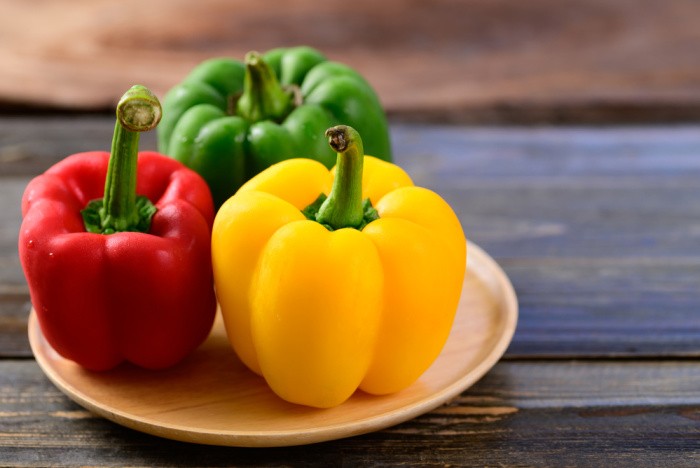
Bell peppers are the go-to for those who enjoy a sweet, mild flavor. These peppers come in a rainbow of green, red, yellow, and orange colors. Each color has a slightly different taste; for example, green bell peppers are a bit more bitter, while red ones are the sweetest because they are fully ripe. How To Dehydrate Bell Peppers
How to Use Them:
- Salads: Bell peppers add a delightful crunch and vibrant color to any bell pepper recipe.
- Stir-fries: Toss them in a hot wok with soy sauce, garlic, and your favorite protein.
- Stuffed Peppers: Hollow them out and stuff them with rice, beans, and cheese for a hearty meal.
Jalapeños
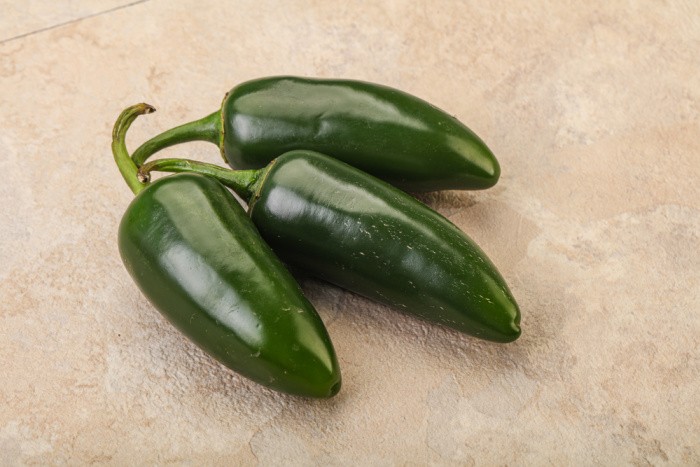
Jalapeños are probably the most well-known spicy pepper. The jalapeno pepper variety has moderate heat, making them perfect for those who want to add kick to a recipe without going overboard. Fresh jalapeños are bright green and can ripen to a deep red, which tends to be sweeter. Jalapeños: What You Need To Know
How to Use Them:
- Salsas: Dice them up and mix them with tomatoes, onions, and cilantro for a classic salsa.
- Nachos: Slice and scatter over nachos for a spicy crunch.
- Pickled Jalapeños: Perfect as a tangy topping for burgers and sandwiches.
Habanero
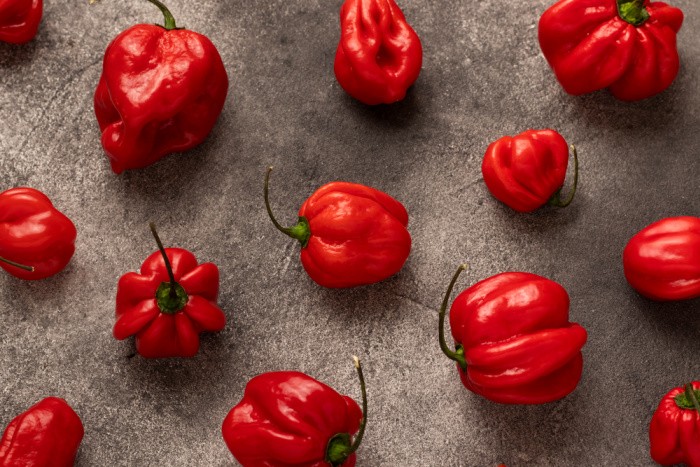
Habanero peppers are small but mighty, packing a serious punch of heat. They come in various colors, including orange, red, and chocolate brown. Their fruity flavor makes them a favorite in Caribbean cuisine.
How to Use Them:
- Hot Sauces: Blend with vinegar and tropical fruits like mango or pineapple for a fiery hot sauce.
- Marinades: Add to marinades for chicken or pork to bring a depth of flavor and heat.
- Chutneys: Combine with fruits and spices for a hot and sweet chutney.
Poblano
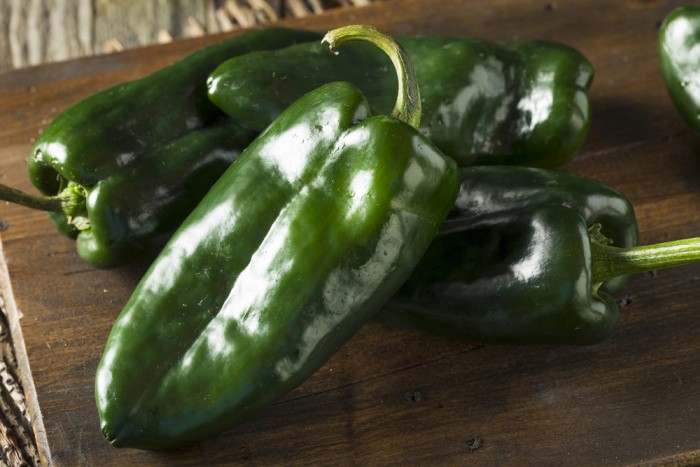
Poblano peppers are larger, dark green peppers with a mild heat and a rich, smoky flavor. Dried, they are known as ancho peppers, a staple in Mexican cooking.
How to Use Them:
- Chiles Rellenos: Stuff with cheese, dip in egg batter, and fry for a classic Mexican dish.
- Mole Sauce: Dried ancho peppers add depth to traditional mole sauce.
- Roasted Poblanos: Roast them and add them to soups, stews, or even sandwiches.
Serrano
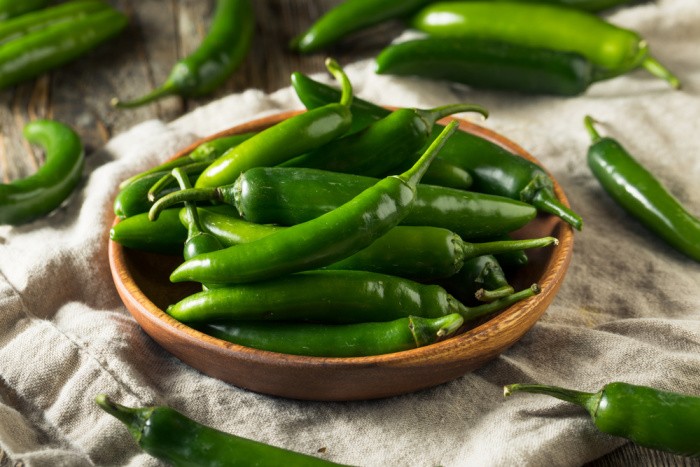
Serrano peppers are similar to jalapeños but pack more heat. They are typically smaller and thinner, with a bright green color that can ripen to red, brown, orange, or yellow.
How to Use Them:
- Pico de Gallo: Chop finely and mix with tomatoes, onions, and cilantro for a fresh salsa.
- Ceviche: Add to fish ceviche for a zesty kick.
- Spicy Dips: Blend into creamy dips for an extra layer of heat.
Cayenne
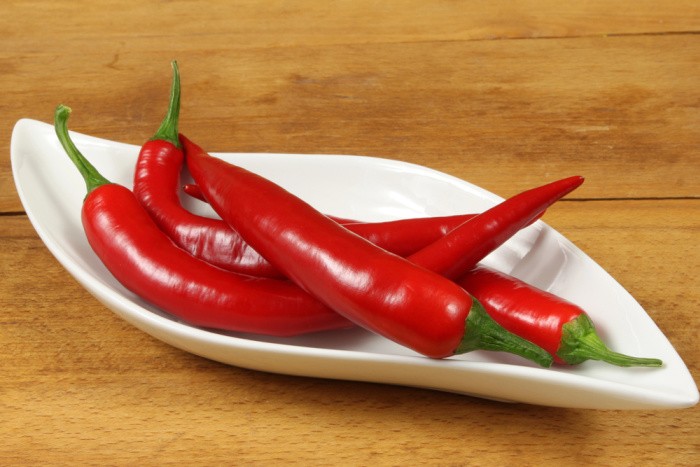
Cayenne peppers are long, thin, and red, known for their hot, tangy flavor. They are often dried and ground into the familiar cayenne pepper spice, a staple in many spice racks.
How to Use Them:
- Spice Blends: Mix into spice blends like Cajun seasoning or curry powder.
- Hot Wings: Use cayenne pepper in the sauce for classic spicy hot wings.
- Health Tonics: Add a lemon and honey water pinch for a metabolism-boosting drink.
Anaheim
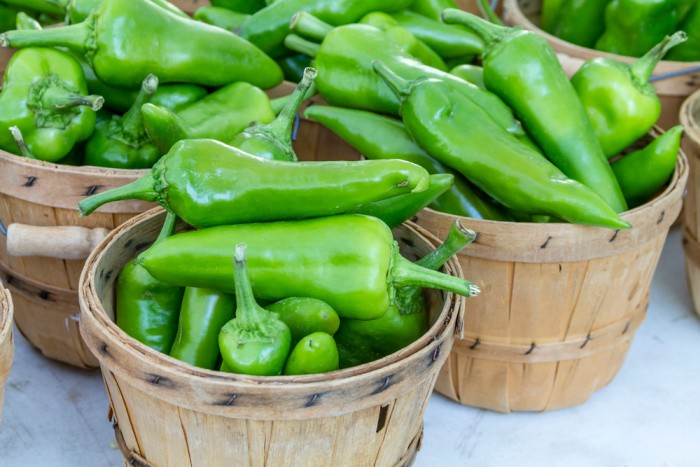
Anaheim peppers are large, mild, and typically green, although they can turn red as they mature. They are a great choice for those who prefer a subtle pepper flavor without too much heat.
How to Use Them:
- Chili: Add to chili for extra flavor without overpowering heat.
- Stuffed Peppers: Fill with cheese, beans, and grains for a tasty vegetarian dish.
- Grilled Peppers: Grill and serve as a side dish or in sandwiches.
Ghost Pepper
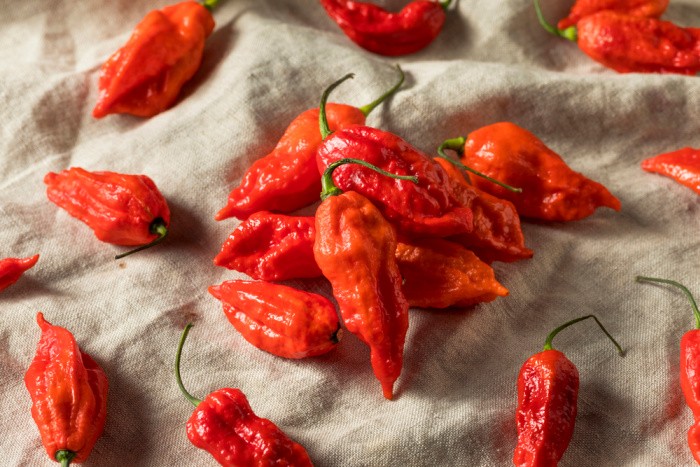
Ghost peppers, or Bhut Jolokia, are one of the hottest peppers in the world. They are not for the faint-hearted, as their heat level is intense.
How to Use Them:
- Hot Sauces: Use sparingly in hot sauces for a thrill-seeking heat.
- Spicy Curries: Add a tiny amount to curries for an extreme heat experience.
- Chili Contests: Perfect for daring chili cook-offs where only the bravest participate.
Cherry Peppers
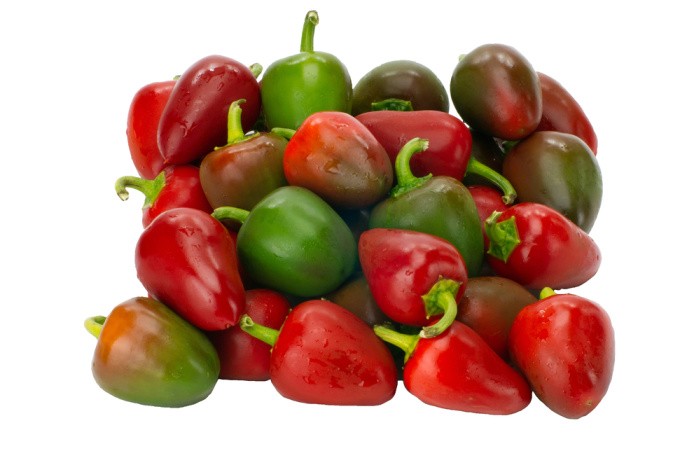
Cherry peppers, known as pimentos, are small, round, sweet or spicy. They are often found pickled and used in various dishes.
How to Use Them:
- Stuffed: Fill with cheese or meats and serve as appetizers.
- Pizza Topping: Slice and add to pizzas for a sweet and spicy kick.
- Salads: Add pickled cherry peppers to salads for a tangy twist.
Shishito
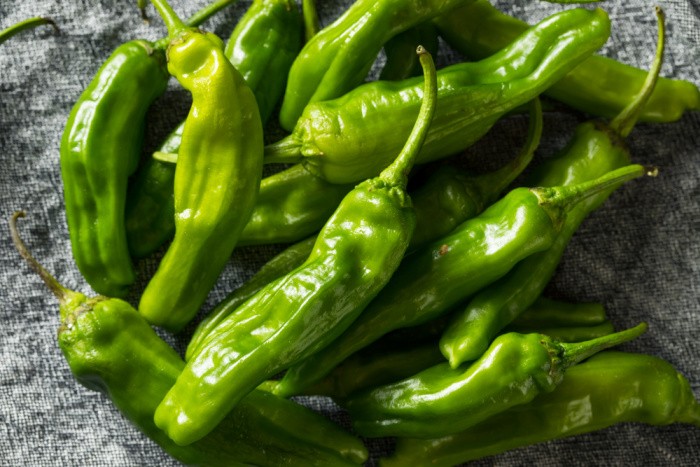
Shishito peppers are small, wrinkled green peppers with a very mild heat. They are popular in Japanese cuisine and are often enjoyed blistered or grilled.
How to Use Them:
- Blistered Shishitos: Toss in a hot pan with oil and salt until blistered.
- Dipping: Serve with a dipping sauce like soy sauce or aioli.
- Tempura: Batter and fry for a delightful tempura dish.
Is it true that you can tell the gender of a bell pepper by the lobes or bumps at the bottom of the pepper?
Bell peppers don’t have a “gender”, and it’s a myth that male peppers have three lobes or bumps and female peppers have four lobes or bumps. Within the bell pepper family, there aren’t males and females. The color of the pepper tends to tell its ripeness, with red being the most common fully ripe color.
What is the Scoville Heat Scale and how is it used for cooking?
The Scoville Scale is a measurement of the spiciness or heat found in chili peppers and other substances. The measurement is recorded in Scoville heat units (SHU). Peppers, and some other foods, have various concentrations of capsaicinoids that give the food its “heat.” Since some peppers have more water/moisture content than others, it takes a high-performance liquid chromatography process to determine the SHU.
On the Internet, you can find charts that outline the various peppers and their SHU rating. For you, the simplest method may be to try different peppers and see which ones your family prefers eating.
What are some of the health benefits of eating peppers?
Peppers in their various varieties may provide different benefits and nutrients as part of your diet, but here are a few general benefits for you to consider:
- They are low in calorie content.
- Great sources of Vitamins A and C.
- They have good fiber content based on their size, but also provide folic acid and potassium.
- Can reduce the risk of high blood pressure, high cholesterol, and Type 2 diabetes.
- It promotes a healthy heart and digestive tract due to antioxidants in their makeup.
More Tips
- Bell Peppers: Everything You Need To Know
- Frugal Ways To Preserve Your Food Today For Tomorrow
- Cooking From Scratch 101
Final Word
Peppers are incredibly versatile, offering a range of flavors and heat levels to suit any palate. From the sweet bell pepper to the fiery ghost pepper, there’s a pepper for every dish and every taste preference. So, next time you’re in the kitchen, why not experiment with a new type of pepper? I love to try different peppers in m
Copyright Images: Bell Pepper Red Yellow and Green Depositphotos_426153974_S By Nungning20, Jalapenos Three on A Table Depositphotos_546964694_S by AndreySt, Habaneros on Cloth Depositphotos_676996676_S by Sergii.kl.ua, Poblano Peppers Depositphotos_139528466_S By Bhofack2, Serrano Peppers Depositphotos_341694738_S By Bhofack2, Cayenne Peppers Depositphotos_7887157_S By Fotokris44, Anaheim Peppers Depositphotos_80991658_S by TeriVirbickis, Ghost Peppers Depositphotos_223524032_S By Bhofack2, Hot Cherry Peppers Depositphotos_9470228_S By Zigzagmtart, Shishito Peppers Depositphotos_283234610_S By Bhofack2





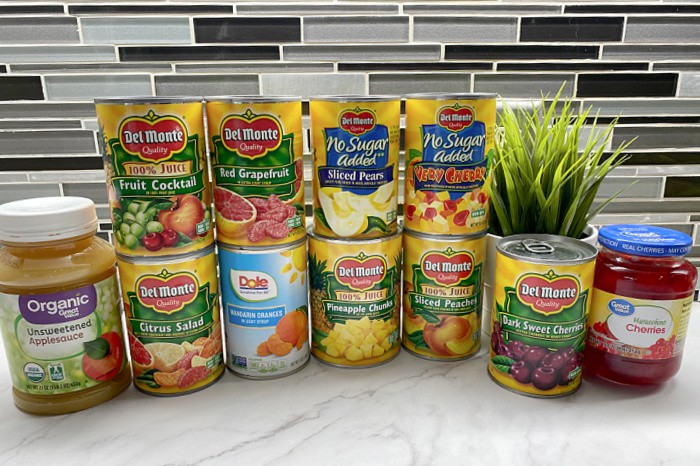

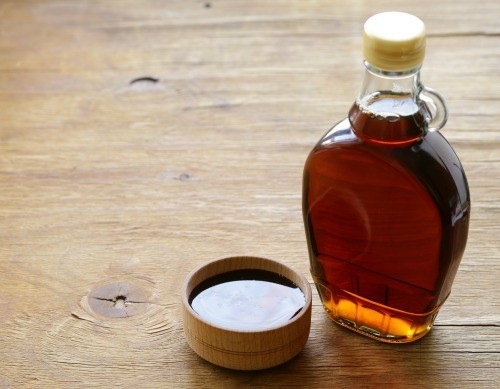
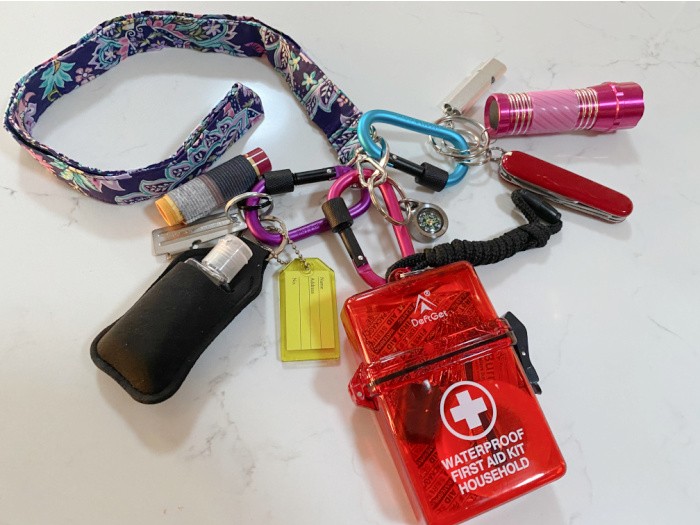












When bell peppers go on sale I like to buy one of each color and make chicken fajitas. I have a homemade fajita seasoning I use or you can purchase it. I always have flour tortillas, frozen chicken or a Costco rotisserie chicken, fresh or frozen onion, sour cream, and my homemade salsa on hand which makes them a fast, easy, and delicious meal.
Hi Kay, oh my gosh, I do too! I love frozen sliced bell peppers and onions! I could eat fajitas every single week! Love this! Linda
The main reason I grow bell peppers is to freeze them for fajitas! OK – they come in handy in hash browns and other cooking too. LOL. I’m excited my peppers and tomatoes are all planted! Now if the ground would warm up enough to plant my green beans and corn. I have a lot of corn seed so I planted one 8′ row for fun in case any come up then I’ll have very early corn. If not . . . well I’ll plant more seed in that row or fill in the blank spots. ;-). Now I freeze some of my corn too to make corn chowder which is amazing to eat in the dead of winter. I can hardly wait! At least my lettuce, onions and herb garden are producing. Linda I can give you starts of many herbs when you get your garden going again.
Hi Kay, thank you for the offer, The builder is putting the cabinets in today. Or at least starting to, no Wolfe stove, dang it. I can’t even talk about the time this house has taken or the cost. We would have been better off building somewhere else. Too late now. There is no way we will get a garden in, they can’t get the house finished, or fix the yard in time to grow anything. That corn chowder sounds yummy! Now I want to make some! Linda